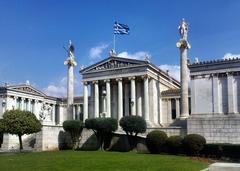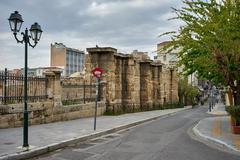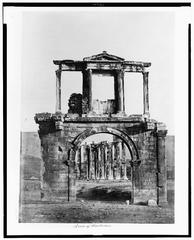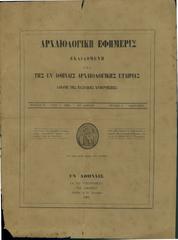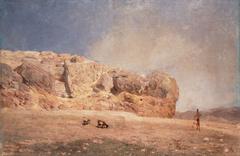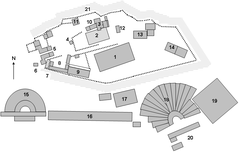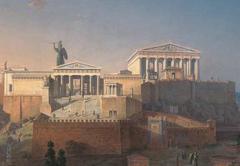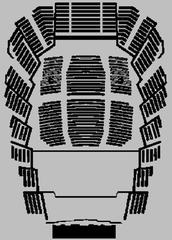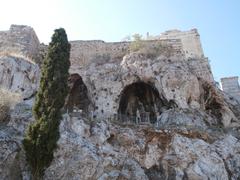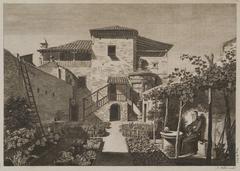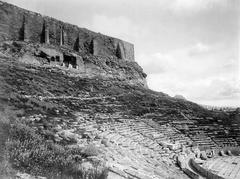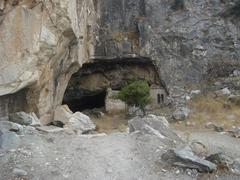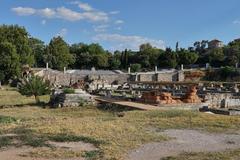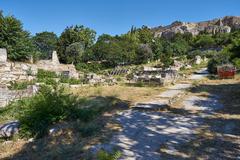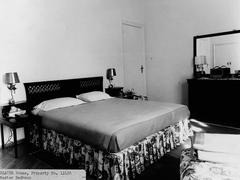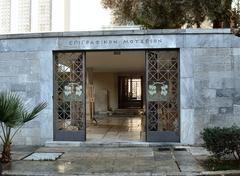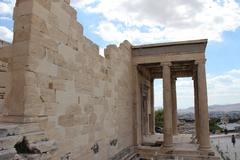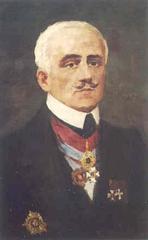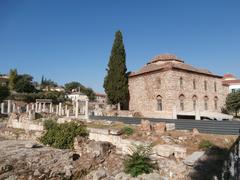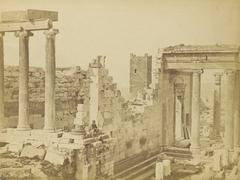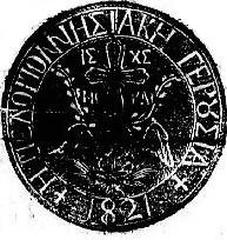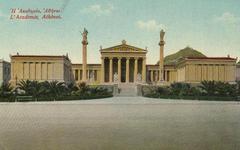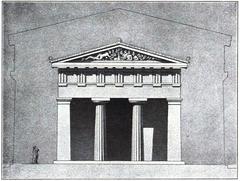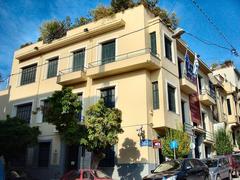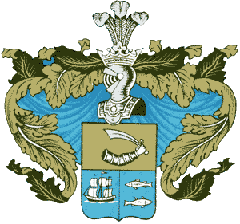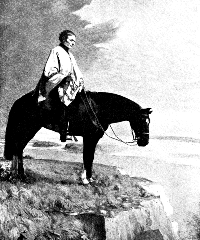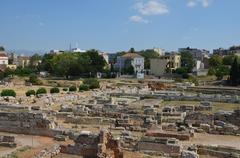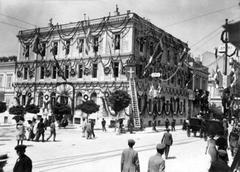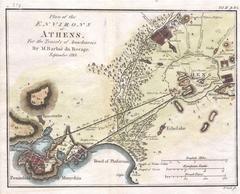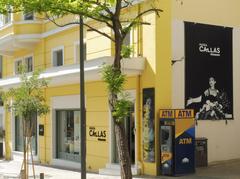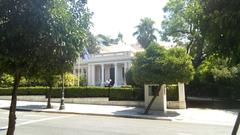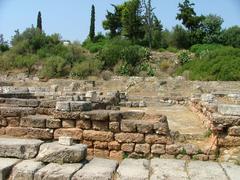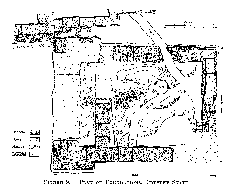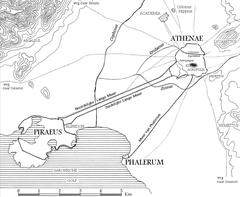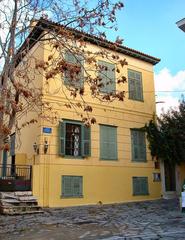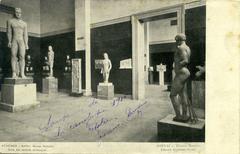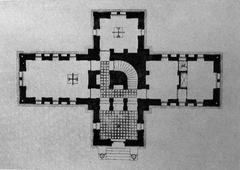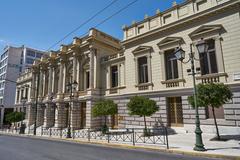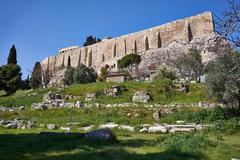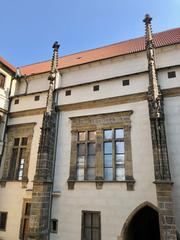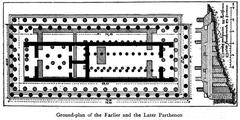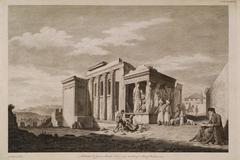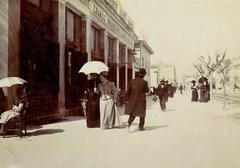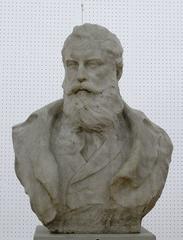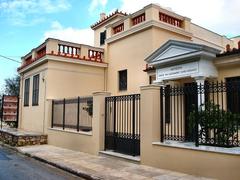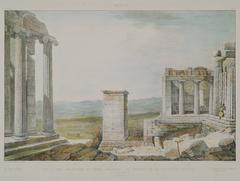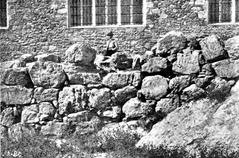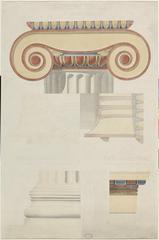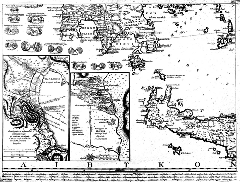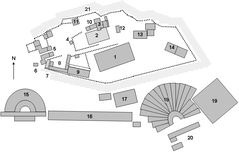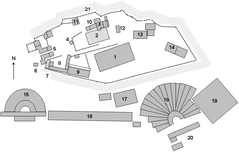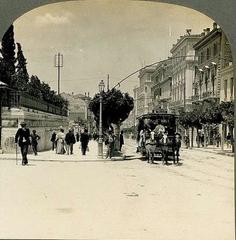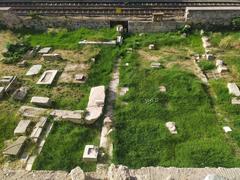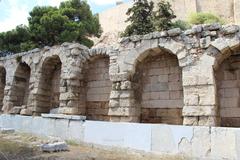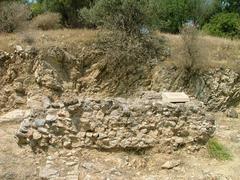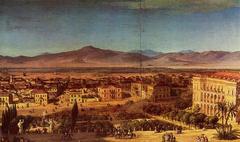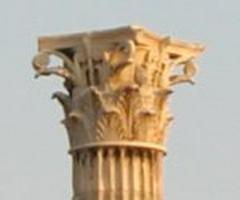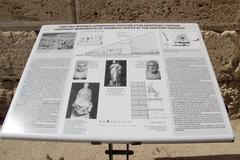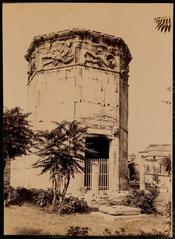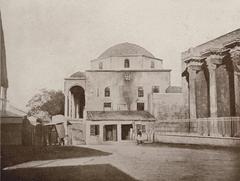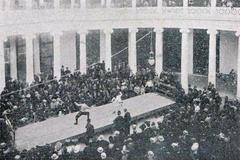Museum of the Ancient Agora Athens: Visiting Hours, Tickets, and Travel Guide
Date: 14/06/2025
Introduction: The Historical and Cultural Significance of the Museum of the Ancient Agora, Athens
The Museum of the Ancient Agora in Athens, Greece, is one of the city’s foremost historical sites, offering an immersive journey into the birthplace of democracy and the vibrant daily life of ancient Athenians. Housed in the reconstructed Stoa of Attalos, the museum sits at the heart of the Ancient Agora—the civic and commercial center of classical Athens. Here, philosophical giants like Socrates, Plato, and Aristotle once debated, and citizens participated in the political and judicial processes that shaped Western civilization.
The Stoa of Attalos, originally a 2nd-century BCE gift from King Attalos II of Pergamon, was painstakingly restored in the 20th century to provide a fitting home for artifacts spanning from prehistoric times through the Byzantine era. Visitors can explore exhibits ranging from everyday pottery and tools to unique objects of Athenian democracy such as ostraka (used in ostracism votes) and the marble cleroterion, a device for selecting jurors. The museum’s accessible layout, educational programs, and stunning views of the Acropolis make it an essential stop for history enthusiasts and casual travelers alike (thisisathens.org, realgreekexperiences.com, ancient-greece.org).
Table of Contents
- Introduction
- Origins and Early Development of the Ancient Agora
- The Agora in the Classical Period
- The Stoa of Attalos: From Hellenistic Gift to Modern Museum
- The Agora as the Birthplace of Democracy
- Roman and Byzantine Transformations
- Archaeological Excavations and Rediscovery
- The Museum’s Collections: Everyday Life and Civic Identity
- Visiting Information: Tickets, Hours, and Accessibility
- Travel Tips and Nearby Attractions
- Special Events and Experiences
- Frequently Asked Questions (FAQ)
- Conclusion
Origins and Early Development of the Ancient Agora
The Ancient Agora of Athens traces its roots to the 6th century BCE, evolving from a residential area and cemetery into a bustling civic space under the reforms of Solon. As the “gathering place,” the Agora became the nucleus of Athenian public life, hosting markets, assemblies, and religious festivals along the Panathenaic Way—a ceremonial road central to city celebrations (audiala.com, realgreekexperiences.com).
The Agora in the Classical Period
During the 5th and 4th centuries BCE, the Agora flourished as the center of Athenian democracy and intellectual life. Important structures included:
- Bouleuterion: Council house for the Boule (council of 500).
- Tholos: Headquarters for the executive committee.
- Heliaia: The main law court.
Monuments like the Temple of Hephaestus, one of Greece’s best-preserved ancient temples, reflected the city’s architectural and religious achievements (audiala.com).
The Stoa of Attalos: From Hellenistic Gift to Modern Museum
Built in the 2nd century BCE and reconstructed in the 1950s, the Stoa of Attalos was both a commercial hub and a social meeting place. Its restoration by the American School of Classical Studies at Athens created a space that now houses the Museum of the Ancient Agora. The museum’s exhibits illuminate ancient Athenian life, politics, and commerce (thisisathens.org, realgreekexperiences.com).
The Agora as the Birthplace of Democracy
The Agora was the cradle of democracy, where citizens gathered to debate, legislate, and administer justice. Unique features included:
- Ostracism: Citizens voted to exile individuals by inscribing names on ostraka (pottery shards)—some of which are displayed in the museum.
- Philosophical Debate: Socrates, Plato, and Aristotle conducted dialogues and teachings here, influencing Western philosophy (audiala.com, realgreekexperiences.com).
Roman and Byzantine Transformations
Roman rule brought new buildings like the Odeon of Agrippa and the relocated Temple of Ares. The Agora remained a civic center until late antiquity, after which its significance declined during the Byzantine era, becoming more residential and religious in character (audiala.com).
Archaeological Excavations and Rediscovery
Systematic excavations began in the 19th century, with the American School of Classical Studies intensifying efforts from 1931 onward. These digs uncovered coins, pottery, statues, and everyday objects, many of which are now on display in the museum (thisisathens.org, realgreekexperiences.com).
The Museum’s Collections: Everyday Life and Civic Identity
The Museum of the Ancient Agora houses artifacts that illustrate the evolution of Athenian society from the Neolithic era through the Byzantine period. Highlights include:
- Democratic Artifacts: Ostraka from ostracism, the marble cleroterion for jury selection, and official weights and measures (archaeologicalmuseums.gr).
- Pottery and Sculpture: Vases, amphoras, and marble statues reflecting daily life and artistic achievements.
- Coins and Inscriptions: Spanning centuries of Athenian commerce and governance.
- Religious and Funerary Objects: Votive offerings, burial goods, and items from deep well deposits.
The museum is fully accessible, with tactile aids and interpretive labels in Greek and English (athens24.com).
Visiting Information: Tickets, Hours, and Accessibility
- Location: Adrianou 24, Athens, adjacent to Monastiraki and Plaka.
- Hours: Open daily, generally 8:00 AM–8:00 PM (April–October), and 8:00 AM–5:00 PM (November–March). Check for holiday variations (Hellenic Ministry of Culture and Sports).
- Tickets: General admission €8 (as of June 2025), with combined tickets (€30) covering multiple major sites. Purchase onsite or online for convenience.
- Accessibility: Wheelchair accessible with ramps and tactile maps; facilities include restrooms and shaded areas.
- Guided Tours: Available by advance booking; audio guides recommended for deeper context.
- Photography: Allowed for personal use (no flash/tripods in certain areas).
Travel Tips and Nearby Attractions
- Best Times: Early morning or late afternoon to avoid crowds and heat.
- Footwear: Wear sturdy shoes due to uneven terrain.
- Hydration: Bring water and sun protection, especially in summer.
- Nearby Attractions: The Acropolis, Roman Agora, Hadrian’s Library, and Plaka are all within walking distance. Combine visits for a full day of historical exploration.
Special Events and Experiences
The museum occasionally hosts lectures, workshops, and cultural events. Check the official museum or tourism websites for current schedules.
Frequently Asked Questions (FAQ)
Q: What are the Museum of the Ancient Agora visiting hours?
A: Typically 8:00 AM–8:00 PM in summer and 8:00 AM–5:00 PM in winter. Confirm before your visit for any changes due to holidays.
Q: How do I purchase tickets?
A: Buy tickets onsite or online via the official Ministry of Culture website.
Q: Is the site accessible for wheelchair users?
A: Yes, the museum and many outdoor paths are wheelchair accessible, with tactile resources for visually impaired visitors.
Q: Are guided tours available?
A: Yes, both guided tours and audio guides are on offer.
Q: Can I take photos?
A: Photography is allowed, but flash and tripods may be restricted in certain areas.
Conclusion
The Museum of the Ancient Agora is a gateway to understanding the roots of democracy and the everyday realities of ancient Athens. With its accessible facilities, diverse collections, and prime location near other key attractions, it offers a rewarding experience for every traveler.
Plan your visit by checking the latest opening hours and ticket options, consider a guided tour for richer context, and explore the wider archaeological area for a comprehensive look at Athens’ storied past.
For up-to-date information, audio guides, and interactive maps, download the Audiala app. Explore related articles on Athens’ historical sites and follow us on social media for the latest travel tips and inspiration.
Images courtesy of Wikimedia Commons.
References
- Museum of the Ancient Agora, 2025, This is Athens
- Visiting the Ancient Agora of Athens, 2023, Real Greek Experiences
- Exploring the Ancient Agora of Athens, 2024, Ancient Greece.org
- Collections of the Ancient Agora Museum, 2024, Athens24
- Museum of the Ancient Agora Visitor Information, 2025, Daves Travel Pages
- Hellenic Ministry of Culture and Sports, 2025
- Audiala App and Travel Tips, 2024, Audiala
